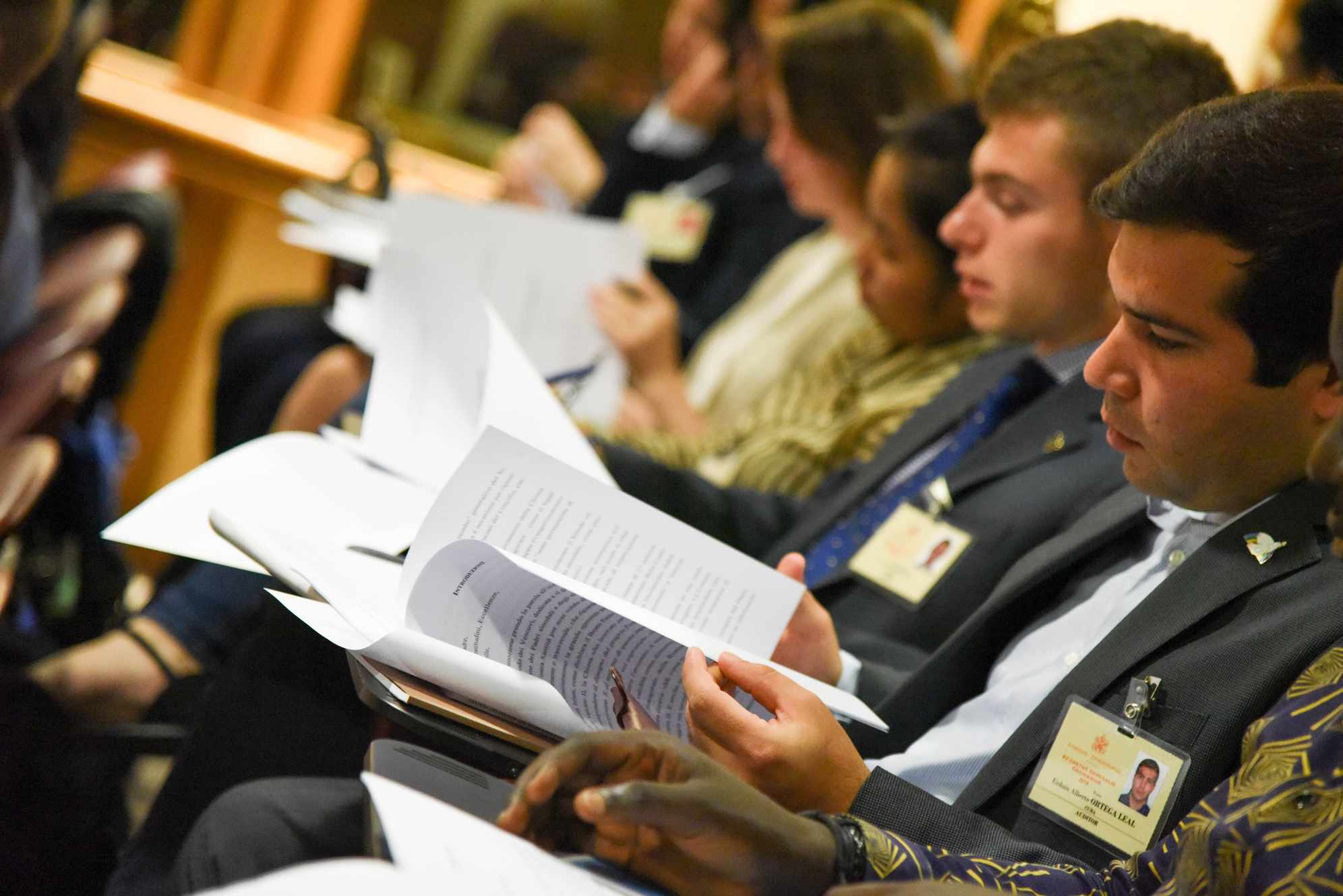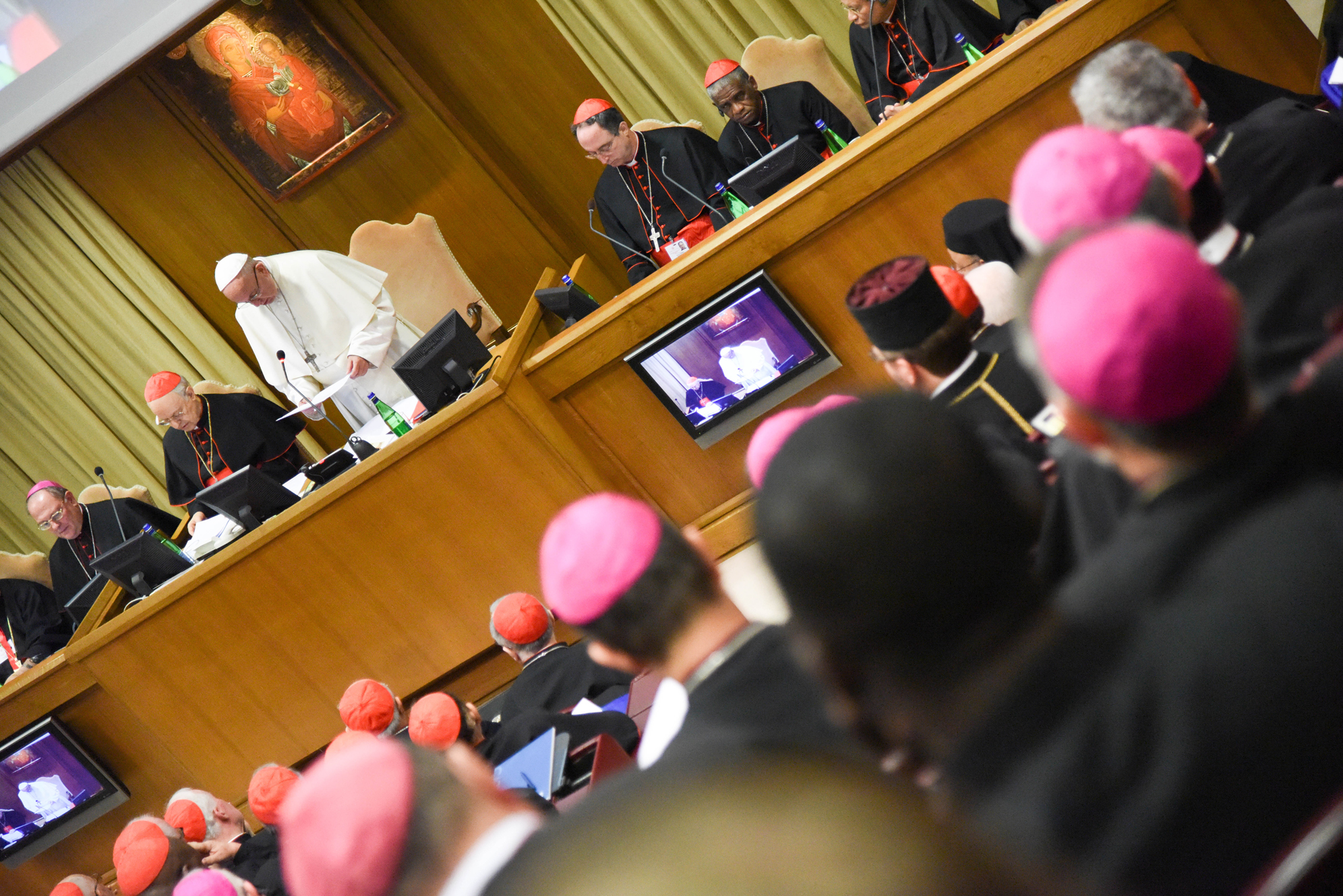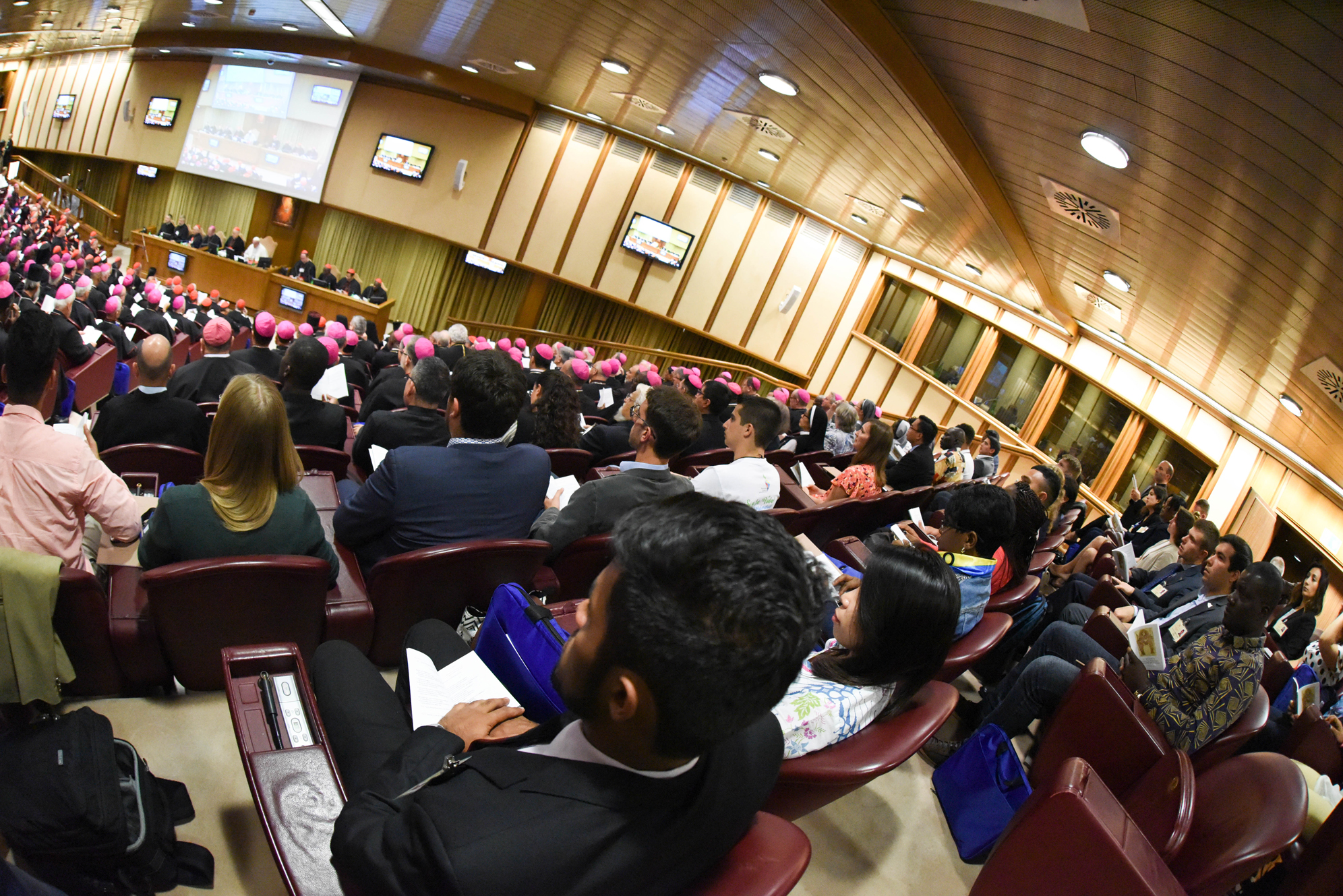
“It’s my first Synod and since the beginning everything came as a surprise to me. I though it would have been more tiring to stay here for such a long time, sitting and listening for eight hours a day, but what we hear is so powerful that it is worth the while.” Msgr. David Tencer speaks about his experience as Synodal Father. The Slovakian Capuchin bishop moved to Iceland in 2004. He has been leading the diocese of Reykjavík since October 31, 2015. He is currently attending the Synod on Young People ongoing at the Vatican as delegate bishop of the Bishops’ Conference of the five Scandinavian Countries.
“Here we listen to what everyone has at heart, what they intend to communicate to the Holy Father and to the whole Church. This means that for the past two weeks we have been listening to the very best.” The future of the Church. Mons. Tencer has made an intervention in which he highlighted the need to trust young people: “I think that if young people really want to do something we ought to show them our support. We are working on something that is important not only for us, but for the future. Young people are the future of the Church and thus they need to feel supported. It is only in the future that we will reap the fruits of the work we are doing here today, like when we wait for a seed to grow after have been planted into the soil.” Young people are brave, they have the ability to take risks, the promptness to seize new opportunities, they are spontaneous and enthusiastic, “all things that we senior citizens are lacking. It’s a strength that needs guidance in order to avert perils, like a car going fast without a driver.”
“What we do here is to try to install a steering wheel, not to limit the young but to give them the possibility to drive the car in the direction they chose. Our efforts are not directed against the strength of young people.”
For Msgr. Tencer, the highlights and prospects emerging from the bishops’ speeches “don’t contradict one another. In fact they are like the tiles of a mosaic. Every intervention gives a different shade of colour to a part of the world, which thus becomes a beautiful multi-coloured mosaic.”
“I always take notes – he said – and at each moment of silence between panel interventions I reread them and underline in red whatever is most important to me, for my service as bishop. I have already listed approximately three-hundred items, so I think I will be busy for many years to come.”
Icelandic youths. There is a singular situation in Iceland: “Young people represent a good group”, they are few so it’s easy to give them guidance and listen to them. “It’s a very different situation compared to the one experienced by the bishops of Nigeria, for example, with millions of young people who cross the Country as migrants.” In Iceland, if a young person wants to be actively engaged he can. There are no economic and social restrictions and no form of discrimination.
“All they need is good will and they will find room inside the Church and in society, which is very open and sensitive towards the young.”A positive example mentioned by the bishop are the measures against youth drug-addiction and alcoholism enforced in the Country for the past ten years.
Need for paternity. The Icelandic bishop said he was impressed by two moments in particular. The first is linked to the Cardinal from the Philippines Luis Tagle, who spoke about his moving meeting with a young man, to the extent that as he spoke he himself broke out in tears. “I had never seen a Cardinal weeping, it was a very touching moment.” That story highlights “the need for paternity of young people who experience broken families or whose fathers work abroad. It reminded me that I must not be just a manager that runs the diocese: I need to leave that the responsibilities I have given to others are followed through, and I must avail myself of the luxury to serve as the father of the diocese.”
The boat and the ocean. The bishop was also “deeply touched” by the speech of another Synodal father “who reminded us about the book of Antoine de Saint-Exupéry ‘The wisdom of the Sands’. I looked up the quotation because I am very fond of this writer”, the bishop said. “It’s the passage where the young prince says that when you need building a ship, you must first show the beauty of the ocean, for if we manage to make people feel passionate about the ocean they will start to plan the building of a boat.”
“If we manage to arouse people’s enthusiasm they will build the ship and they will do what is good.”
The document. Whilst sharing his experience, Msgr. Tencer pointed out: “no problem is hidden under the carpet, everything is put on the table.” As regards the presence of young people and their contribution he said:
“We already knew many of the issues they discussed, but the ways in which they conveyed them and in which they behaved in the Synod is precious. When they appreciate an intervention they praise it out lout, they clap their hands. Who would have ever imagined that we would have heard loud voices in the Synod? Yet, it occurs quite often and the elder bishops sometimes are taken aback. It’s beautiful to see how the young have changed the atmosphere in that Hall.” Does the final document risk being a compound of different things? “The Church has a well-developed way of working together, which always surprises me. The questionnaire led to the Instrumentum laboris that is now being discussed in the groups, in the circles, with a very concrete approach. Sometimes someone proposes to eliminate entire chapters, sometimes there is the need to change just a few words. Everyone is determined to draw up the best possible document and give a clear sign not only to young people who feel close to the Church but to all the youths, although the document is not directed to them specifically. If a message for young people is drafted, as it is intended, it will need to be written in a language that they can understand.”
- foto SIR/Marco Calvarese
- foto SIR/Marco Calvarese
- foto SIR/Marco Calvarese
















